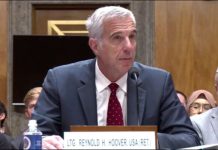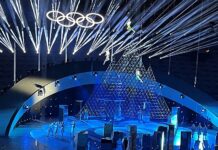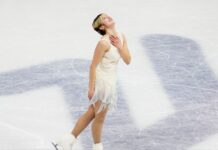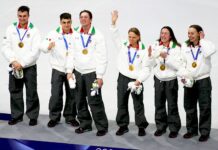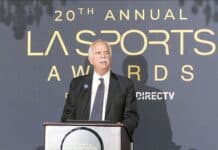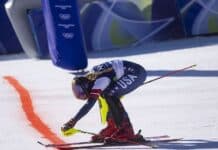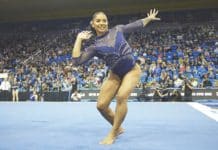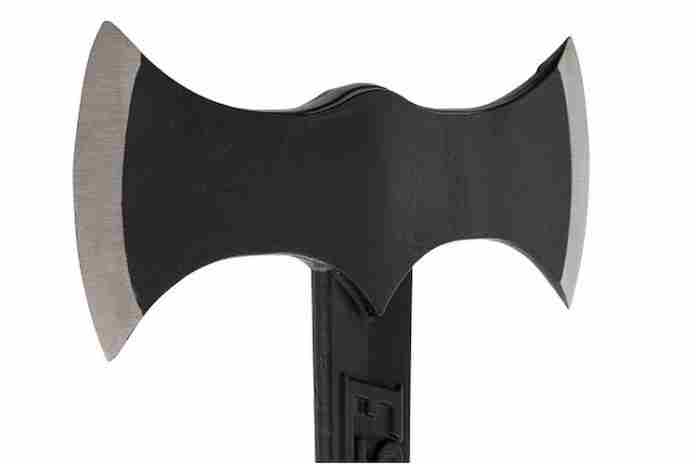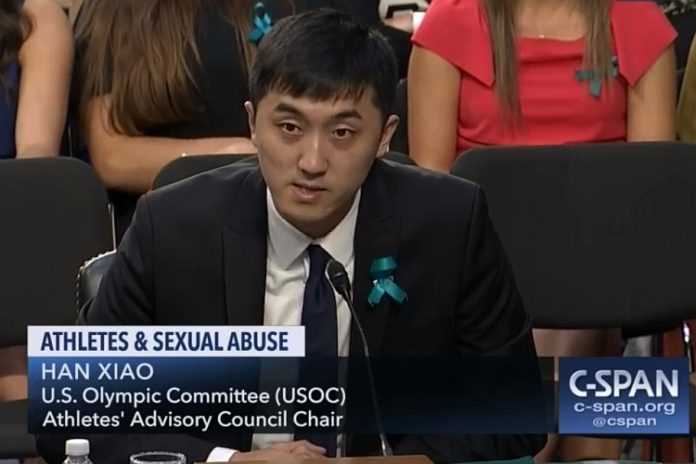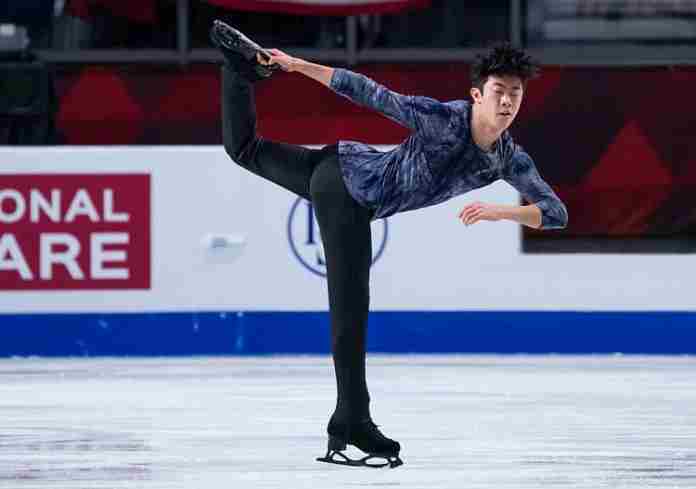(★ Friends: So grateful for our 34 donors toward our December bill for server and support costs; we’re at 81% of our goal. If you would like to help out, please donate here. Your enthusiasm is the motivation for this site. ★)
The latest news, notes and quotes from the worldwide Five-Ring Circus:
● WADA vs. RUSADA ● The Court of Arbitration for Sport released its 186-page decision in the World Anti-Doping Agency vs. Russian Anti-Doping Agency case today (14th), with the three-member panel essentially using an “it’s all about the athletes” reasoning to significantly narrow the WADA-requested sanctions on Russian athletes.
The panel repeatedly cited a requirement of “proportionality” in the decision, noting that athletes affected by the 2011-15 doping program are most often not those competing now:
“Although the history of improper conduct which has ultimately led to these proceedings is long and serious, the Panel considers it would be disproportionate to impose severe restrictions on the next generation of Russian athletes. In particular, as the doping schemes addressed in the McLaren Reports occurred between 2012 and 2016, the Panel considers it very unlikely that any athletes who will be participating in the Youth Olympic Games were involved in those schemes.”
The decision then dismissed sanctions on Russian athletes for the Youth Olympic Games, holding those teenagers to be innocent in the context of the RUSADA scandal and then pushed aside sanctions against participation in continental events such as the European Championships on hyper-technical grounds, holding that participation bans on “‘events organized by Major Event Organizations’ lacks the specificity that is desirable in an Award of this nature.”
Regarding the Olympic and Olympic Winter Games, the Panel interpreted the WADA sanctioning rules to impact participation only to the next editions of the Olympic and Winter Games and since the Tokyo Games were postponed to 2021 and the Beijing Winter Games are in 2022, only a two-year sanction – instead of four, that would have extended to Paris 2024 – is required.
As concerns athletes, the arbitrators simply fell back on the refrain of “it’s all about the athletes” and no one should be kept from participating if at all possible:
“[T]he Panel finds that the [International Standard for Code Compliance by Signatories] permits the exclusion of Athletes and Athlete Support Personnel as a Signatory Consequence for [National Anti-Doping Organization] non-compliance, subject to a requirement that consideration be given to mechanisms for those persons to be permitted to compete (including in a neutral capacity).
“For reasons given below, the Panel is of the view that it would be excessively burdensome and inappropriate in the circumstances to require Russian Athletes and Athlete Support Personnel to bear the onus of proving they were not affected in any way by the manipulation of the Moscow Data in the manner proposed by WADA in its proposed Notice to Signatories (Exhibit C-51). Nonetheless, the Panel considers it is necessary and appropriate to impose requirements for Russian Athletes and Athlete Support Personnel to compete in a neutral capacity (though a less restrictive one than that proposed by WADA).”
The decision emphasized the impact of competing as a neutral athlete vs. under their country’s flag as highly impactful and a severe sanction in itself. So in addition to banning those athletes or coaches already restricted or excluded from competing – either under doping suspensions or under a general exclusion as World Athletics has done for Russian track athletes – “the Panel is satisfied that the ISCCS expressly provides a basis for the Panel to then impose conditions of neutral participation.”
This was emphasized in a concluding paragraph, no. 791:
“The Panel finds that it is appropriate to impose a modified and less restrictive version of the [Neutral Participation Implementation Criteria] to that proposed by WADA. The Panel considers that the conditions under which Russian athletes may participate should allow some limited association with the name (for example, ‘Neutral Athlete from Russia’) and colours of their homeland where necessary, but subject to restrictions as to the use of the Russian flag, national symbols and the Russian national anthem in a sport, recognition or awards capacity. This accommodates a balance between the WADA submission that the purpose of the consequences is that the athlete will not be associated with Russia, and the opposing concern that clean athletes should not be affected by neutrality conditions for any longer than is justified.”
It’s all about the athletes.
Comment: This is an abominable exercise in pretzel-making, as the Panel acknowledged and then ignored, Article 10.2.5 of the International Standard for Code Compliance:
“10.2.5 Above all else, the Signatory Consequences imposed should be sufficient to maintain the confidence of Athletes, other stakeholders, and of the public at large, in the commitment of WADA and its partners from the public authorities and from the sport movement to do what is necessary to defend the integrity of sport against the scourge of doping. This is the most important and fundamental objective, overriding all others.”
The Panel decision regarding Russian participation, deciding on its own instead of by reference to the governing text above, that neutral status – “with some limited association” – to the national flag and colors, is the most preferable outcome is ludicrous. The focus in the decision was strictly on the impact on entrants from a country which systematically subverted the anti-doping process for years – and may still be doing so – and completely ignored the impact on participants from other countries, who are wholly unsure of whether they are competing against doped-up competitors. The WADA Code requires this to be included in the calculation of consequences and the arbitrators simply ignored it.
As suggested on this site in December, this decision should be appealed to the Swiss Federal Tribunal. There is time to do so, as the 30-day filing deadline is likely from the release of the full decision, which was today (14th).
It’s up to WADA now.
● Athletics ● The Athletics Integrity Unit provisionally suspended Rio 100 m hurdles gold medalist Brianna McNeal (USA) on 13 January for “Tampering with any part of Doping Control.”
No other details were provided, but a full charge should be filed soon. McNeal was suspended for a year in 2017 for missing three tests within a 12-month period, and could, as a two-time loser, be suspended for up to eight years.
McNeal has had a tough time since winning Olympic gold in Rio, having also false-started out of the 2019 World Championships in Doha, Qatar last October.
¶
Things have gone from bad to worse for South African long jump star Luvo Manyonga. He was suspended by the Athletics Integrity Unit on 23 December 2020 for “whereabouts” failures, and now, TheSouthAfrican has reported that he has lost his Nike sponsorship and has gone missing.
Now 29, Manyonga was World Champion in 2017, the 2016 Olympic silver medalist and a favorite for Tokyo. The news story included an unattributed comment:
“Nike pulled the plug on Luvo. He is broke and owes a lot of people money. Nike has zero tolerance for drug abuse. The boy got paid big money every month, but he messed things up. He got nice sports gear on top of the big money they paid him every month.”
¶
Paralympic star Blake Leeper is back in action, filing a new application with World Athletics to be allowed to use a new set of prostheses to compete with “able-bodied” athletes.
His attorneys posted a news release on Tuesday (12th), reaffirming his appeal to the Swiss Federal Tribunal of a Court of Arbitration for Sport decision against him and in favor of World Athletics for disallowing his use of the prostheses with which he ran a sensational 44.38 400 m in the 2019 USA Track & Field Championships.
The decision noted that his prostheses gave him an advantage in that they heightened his body beyond the Maximum Allowable Standing Height (MASH) rule used for Paralympic competitions. Leeper’s lawyers complained that the MASH rule was not developed considering “Black disabled athletes of African heritage,” and was therefore racially discriminatory.
Now, he is using a new set of prostheses which still does not meet the MASH rule, but:
“The new prostheses are the same type as the [running-specific prosthetics] that Mr. Leeper previously used, but are set so that his so-called MASH height would be 6 feet, 1 inch (185.42 cm), approximately one-and-a-half inches shorter than his prior RSPs. Mr. Leeper has worked with his coaches and training team since the CAS decision, re-learning to run at this lower height using these RSPs. However, the height is still higher than that permitted by the MASH rule, and Mr. Leeper cannot learn to run competitively at any lower height, which is unnatural for him.”
Leeper is asking for an expedited – and expected to be negative – ruling from World Athletics, so that it can be appealed quickly to the Court of Arbitration for Sport.
● Gymnastics ● Rio gold and silver medalist Laurie Hernandez announced her return to competition on her Twitter feed on Tuesday (12th), for the Winter Cup Challenge in Indianapolis on 27 February.
One of the stars of the U.S. team in Rio in 2016, Hernandez – then 16 – won gold as a member of the U.S. team, then took a silver medal on Beam. She left the sport and now 20, is making a comeback, looking toward a possible berth on the U.S. team for Tokyo.
● Handball ● The 27th IHF men’s World Championships got going in Egypt – without spectators or media – with Egypt scoring a 35-29 win over Chile in Group G in the opener on Wednesday (13th).
Although the U.S. had expected to compete in its first Worlds since 2001, it was announced on Tuesday (12th) that the American team had withdrawn as tests “indicated that a majority of our players and staff members tested positive for the virus. Each affected individual is now in quarantine and unable to travel to Cairo.”
The tournament rolled on and Switzerland took the place of the U.S. in Group E and won its first match, 28-25, over Austria on Thursday (14th).
Russia made its first appearance in a World Championship since the CAS decision trimmed the WADA sanctions on participation (see story above). The Russian Handball Federation team tied with Belarus, 32-32, on Thursday. The team wore a familiar red uniform, but the word Russia was not seen, although there were plenty of sponsor logos. The logo of the Russian Handball Federation was on the front of the jersey, but without any text.
● Ice Hockey ● The continuing tussle over whether half of the 2021 IIHF men’s World Championship will be held in Belarus led to a meeting earlier this week between the federation and the political leaders of the country, including President Alexander Lukashenko.
A posting on the IIHF Web site included a question-and-answer session with federation chief Rene Fasel (SUI), who noted “Under the current circumstances, a visit with the government was absolutely vital for the IIHF to address its concerns directly to the Belarus President, concerns that related not only to the organization of the tournament but to the whole situation in Belarus.”
The outcome? Fasel reported:
● “[T]he IIHF is deeply concerned over the capability of the organizer in Minsk to deliver the tournament safely in a COVID-19 environment, there is an ongoing investigation by the IIHF into the Belarusian Ice Hockey Association President, and there is unrest within the country that has significantly impacted tournament preparations and raised a number of justifiable concerns from teams, fans, and government officials.”
● “We came in with specific requirements that the government should fulfill in order that the World Championship can take place in Minsk. Among these was a pledge to find peaceful solutions towards improving the socio-political situation within the country, and to allow all Belarusian athletes the opportunity to return to and compete in their respective sports.
“Most importantly, the Belarusian government agreed to an open and constructive dialogue with the opposition to take the 2021 IIHF Ice Hockey World Championship out of the political focus and to use sports as a mean to bring people together. We acknowledge that our requests are outside sport and going into the direction of politics, but we feel the end results of our requests were necessary to ensure a safe championship.”
Fasel also referenced the recent past as a reason to try and salvage Minsk as a co-host of the tournament:
“We are not naive to think that hosting a World Championship in Minsk will solve all problems in the country, but that does not mean we cannot explore whether the IIHF can use some degree of influence to initiate positive change in the country’s future.
“Back at the Olympics in PyeongChang 2018, while it led to historic meetings between them, a Unified Korea team did not solve the problems or magically change relations between the two countries of Korea and DPR Korea. But was it worth it? Absolutely.”
The Latvian co-organizers have indicated they will not participate in a joint hosting with Belarus. Fasel said a special IIHF Council meeting is being scheduled and that the situation is being monitored, with no back-up plan in place … yet. The Worlds are scheduled for 21 May-6 June.
● Swimming ● At 6-6, two-time Olympic gold medalist Klete Keller stands out in a crowd, and among the crowd during the riot at the U.S. Capitol on 6 January, he was captured on video inside the Capitol itself. His identify was noted in a Monday (11th) story on SwimSwam.com.
The former star swimmer was charged with obstructing law enforcement engaged in official duties, unlawfully entering Capitol grounds and disorderly conduct on Capitol grounds.
Keller, now 38, won five Olympic and five World Championships medals between 2000-08, all on relays. He was a member of the winning U.S. teams in the 4×200 m Freestyle relays at the 2004 and 2008 Games. He has been a commercial real estate professional in the Colorado Springs, Colorado area, but separated from the firm he was associated with after his appearance on videos of the riot confirmed his presence.
U.S. Olympic & Paralympic Committee chief executive Sarah Hirshland released a statement yesterday before Keller’s identity was confirmed, but which stated that the organization needed to “wait for law enforcement to confirm the identity of the individual and determine necessary action, and then evaluate any appropriate actions of our own.”
A USA Swimming statement noted: “It is very simple and very clear. Mr. Keller’s actions in no way represent the values or mission of USA Swimming. And while once a swimmer at the highest levels of our sport – representing the country and democracy he so willfully attacked – Mr. Keller has not been a member of this organization since 2008.”
● Weightlifting ● The International Weightlifting Federation is in a mess, in part because it dismissed American Ursula Papandrea Garza as Interim President following the ouster of Tamas Ajan (HUN) last year.
Her efforts led directly to significant findings in the McLaren Global Solutions report, especially her demand – reluctantly followed – to provide IWF documents and electronic files to the investigators.
Her dismissal alarmed the International Olympic Committee, which noted its positive working relationship with her, and now Papandrea has announced her candidacy for the IWF Presidency, to be voted on in March.
She declared in a Thursday announcement:
“When I took over as Acting President of the IWF, I knew some of the vital and necessary changes could not wait until a new permanent President was appointed.
“What I have discovered is a toxic culture of corruption, self-interest and doping that prioritises maintaining the status quo.
“The governance of the IWF has tarnished the reputation of our great sport almost beyond repair and its Olympic status remains under threat.
“The current board comprises of members with a catalogue of misdemeanours, sanctions violations and red flags that lacks the genuine will to support the essential changes the organisation needs in order to survive.
“Only when we remove those who have been complicit in corruption within the organisation can weightlifting restore its integrity and rebuild its status in world sport.”
“I have seen with my own eyes how deeply corrupt the IWF is and a root-and-branch transformation is essential to give our great sport a chance to recover.
“When Board Members, who should have the sport’s best interests at heart, ignore the counsel of the IOC and block all attempts at reform, it underlines the scale of the challenge ahead.
“Only when the old guard and their methods have been completely removed and barred from future involvement in weightlifting at any level can we transform the IWF’s culture and provide confidence for our athletes, our coaches, our staff and our fans.
“Be under no illusions – the future of weightlifting is at stake – and if elected I will invoke the real change required to ensure we set the standards for good practice in international sports governance to make us fit for purpose in future.”
The IOC will be watching closely and the Olympic future of weightlifting may be at stake.
● Wrestling ● “The intent of the series is to provide unrestricted access for every college coach and recruiter to the single-highest concentration of high school talent, with every match available online through host broadcaster Trackwrestling.”
In a brilliant demonstration of what can be done to support young athletes and preserve the “pipeline” of college wrestling, USA Wrestling announced its High School National Recruiting Showcase, to take place from 26-28 March at a site to be named.
All current state champions are automatically invited, as are National Prep winners, and prior state winners can qualify through regional competitions – National Recruiting Showcase Qualifiers – to be held earlier in March.
This is an outstanding example of offering athletes an opportunity to make up for the lost opportunities of their high school seasons in terms of exposure to college coaches for potential scholarships and other opportunities. It’s an idea probably worth keeping and likely should be expanded to other sports.
● The Last Word ● When considering the situation of Olympic sports compared to the National Football League, it hardly seems that the NFL needs much help. But last weekend, the NFL teamed with the kid-focused Nickelodeon Channel, owned by ViacomCBS, to offer a special edition of the Chicago vs. New Orleans playoff game on Sunday (10th).
The production started with a SpongeBob SportsPants Countdown Special and then offered a special, Nickelodeon-themed version of the game, with its own announcers, Nickelodeon-themed graphics, a special halftime show and other elements.
The result? According to SportBusiness.com, the game ”drew an average audience of 2.061 million viewers, marking the channel’s largest audience since 2017 and up 245 per cent from Nickelodeon’s comparable programming window a year ago” and was heavily cited on social media during its Sunday afternoon window.
It’s a worthwhile lesson for all sports marketers for the future.
You can receive our exclusive TSX Report by e-mail by clicking here. You can also refer a friend by clicking here, and can donate here to keep this site going.
For our 709-event International Sports Calendar for 2021 and beyond, by date and by sport, click here!







